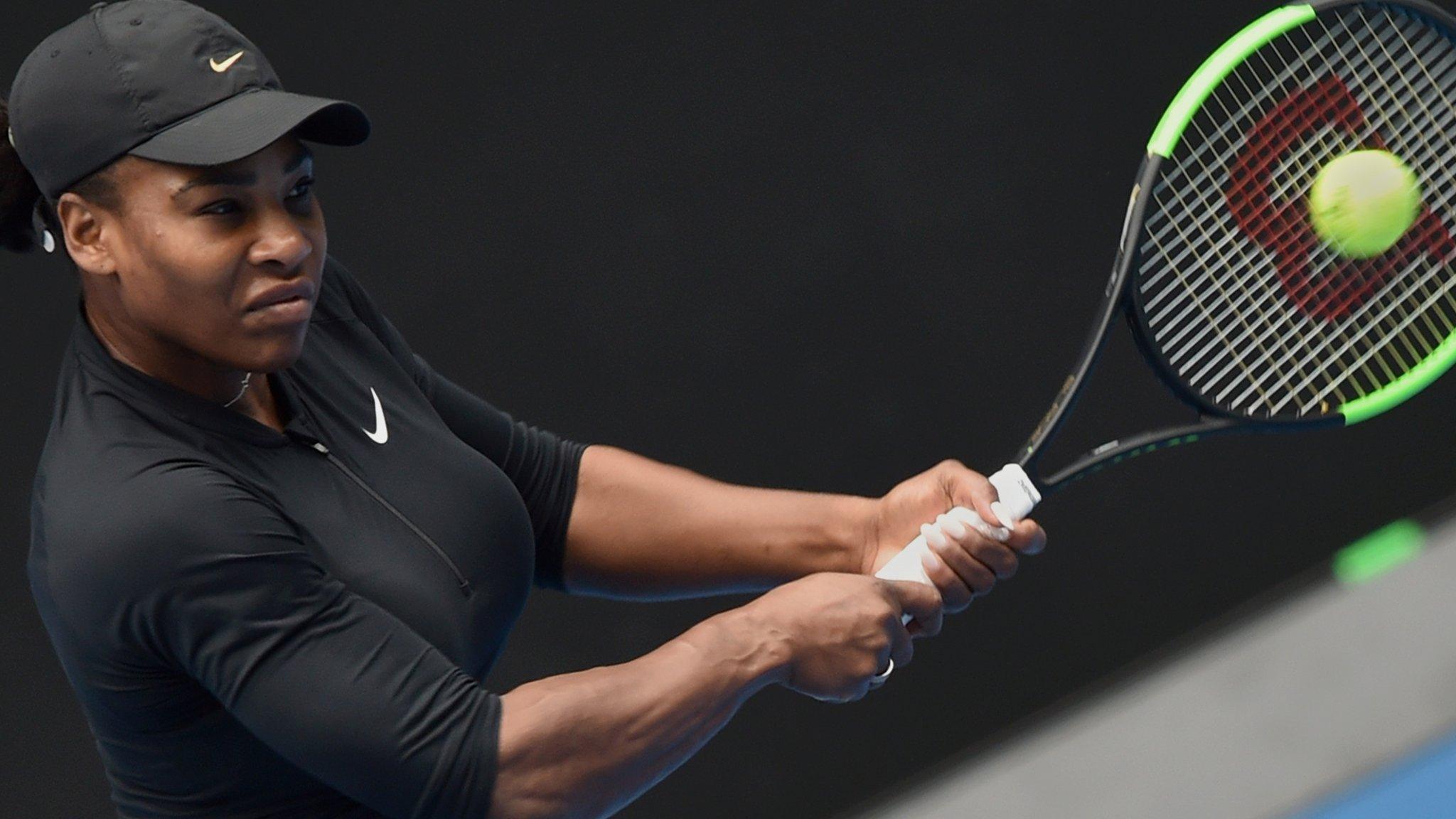Australian Open 2017: Andy Murray & Johanna Konta lead British challenge
- Published
- comments
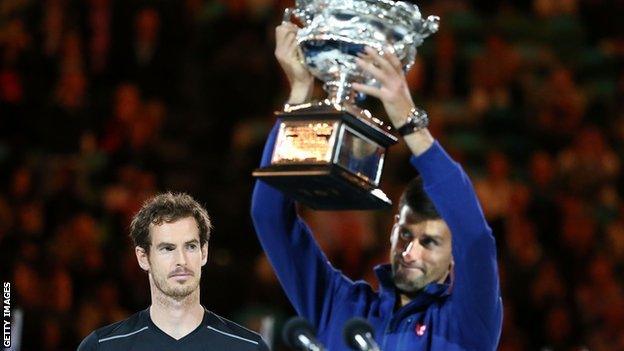
Novak Djokovic has won the Australian Open a record six times with his latest win against Andy Murray in 2016
Australian Open 2017 |
|---|
Venue: Melbourne Park, Melbourne Dates: 16-29 Jan |
Coverage: Live commentary on BBC Radio 5 live sports extra plus TV highlights on BBC Two from 21 Jan; live text on selected matches on BBC Sport website. |
Andy Murray says it feels no different to enter the Australian Open as the world number one. A few players do now address him as 'Sir' - but that, he says, is with tongue firmly in cheek.
The challenge, though, remains as tough as ever. Murray has lost five finals in Melbourne in the past seven years, while Novak Djokovic - now the number two - has won the title six times in all.
Murray struck an important blow by beating his lifelong rival at the World Tour Finals to end 2016 at the top of the rankings; but earlier this month, the Serb hit back to win the Qatar Open in Doha and halt Murray's winning streak at 28 in a match of nearly three hours.
Murray is expecting another gruelling clash should they meet in the final here in Melbourne on 29 January.
"The way that we both play, we can't just hit through each other in one shot," the Scot said.
"It takes a few big shots to win points, so if we're playing well they tend to be long, physical matches.
"Doha was good because I was able to see how well I recovered from it: first week of the year, you can be a bit stiff and sore. I pulled up pretty well, so it was positive."
Much may depend on the energy they expend in the early rounds of the competition. The draw does not appear to leave either at a significant advantage, so at 29, Murray has as good a chance as ever of winning his first Australian Open title.
In-form Konta 'happy' before Australian Open
Konta now a potential champion
In the women's draw, there is a real opportunity for a top-20 player without a Grand Slam title to break their duck at this Australian Open. Britain's Johanna Konta is as well equipped as any.
The 25-year-old, who will be ninth in Monday's world rankings, is on a high after winning her second WTA title in Sydney on Friday, but it does mean she has had little time to rest before a challenging first week.
Her draw appears brutal (although she will not thank you for telling her, as she prefers not to look beyond the first match).
If Konta can beat 2013 Wimbledon semi-finalist Kirsten Flipkens of Belgium in the first round, she might then have to face the aggressive talent of Japanese 19-year-old Naomi Osaka in the second round and former world number one Caroline Wozniacki in the third.
Konta's decision at the end of last season to part company with coach Esteban Carril, so soon after the sudden death of her mental coach Juan Coto, was a big surprise.
The WTA's most improved player of 2016 was 150 in the world when she started working with Carril, but my understanding is the two were unable to agree financial terms for the year ahead.
It is a sign of Konta's standing in the game that she has been able to attract one of the best in the business as a replacement. Wim Fissette is just 36 - but already has a sparkling CV.
The Belgian was coach to Kim Clijsters when she won three of her Grand Slam titles, and has also coached Sabine Lisicki and Simona Halep to Grand Slam finals. A flourishing partnership with Victoria Azarenka only ended when the Belarusian announced she was taking a break from the sport because she was pregnant.
Konta and Fissette agreed to work together after a trial week at Patrick Mouratoglou's Academy in Nice in the week before Christmas. Mouratoglou, the coach of Serena Williams, rates Fissette highly.
"He's worked with some of the best players on tour so he has the experience and I think he's still fresh," he said.
"He's young, so he still has the motivation which is something very important because when you get older, a lot of guys don't want to travel that much. He's one of the best on tour, so I think it's a good pick."
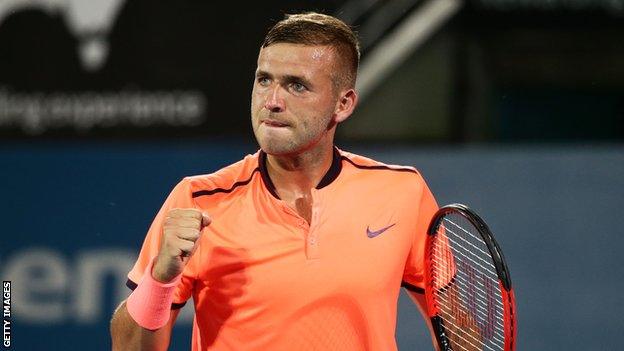
Dan Evans reached his first ATP final this month, losing to Luxembourg's Gilles Muller in the final of the Sydney International on Saturday
Supporting cast no longer just make up the numbers
At last year's US Open, Dan Evans made the third round, and fellow Briton Kyle Edmund the fourth.
Edmund, 22, is now a top-50 player, and Evans just a single place adrift after he appeared in his maiden ATP final in Sydney on Saturday.
Evans' creative talents have long been on show, but his consistency is now far greater and even in the defeat by Luxembourg's Gilles Muller the 5ft 9in player showed his serve can still pack a punch.
All of the 26-year-old's matches bar the final in Sydney went to three sets, so sustaining his form in the opening week in Melbourne will be tough - especially with a Monday start.
Evans, who faces Argentina's Facundo Bagnis in the first round, says it is positive that the matches are coming thick and fast and he was grateful for the private jet laid on by Tennis Australia for the journey to Melbourne on Saturday night.
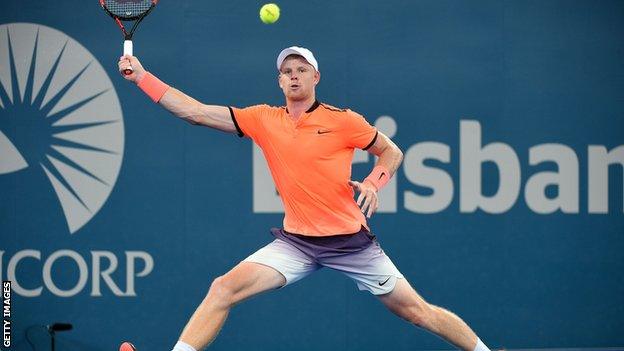
Kyle Edmund lost in the first round in Melbourne last year
Edmund, meanwhile, has developed the useful knack of halving his world ranking on an annual basis. Every year, the challenge gets tougher, but he now stands at 46 in the world and in Brisbane earlier this month featured in his fifth ATP quarter-final since the start of last year.
His forehand is one of the most powerful in the world, his net game much improved, and the physical problems which have undermined him in five-set matches hopefully now a thing of the past.
Cramp proved his undoing in the first round of last year's Australian Open, and Edmund will once again have to deal with temperatures in the mid-30s Celsius for his first-round match against Colombia's Santiago Giraldo on Tuesday.
It was not a year to remember in 2016 for Aljaz Bedene, who nearly decided to walk away from the sport last summer. His love of tennis deserted him - something he relates directly to the International Tennis Federation's rejection of his appeal against his ineligibility to play Davis Cup for Great Britain.
"I honestly didn't want to play tennis, I didn't want to think about tennis," Slovenian-born Bedene, 27, said.
With his love of the game seemingly restored, Bedene faces Victor Estrella Burgos in the opening round. There is no finer example of the perils of retiring too young than the man from the Dominican Republic, who cracked the top 100 for the first time at the age of 33.
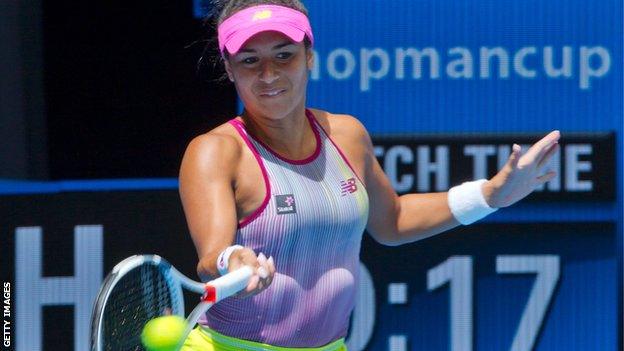
Heather Watson faces 2011 US Open champion and home favourite Sam Stosur in her first-round match
Watson and Broady hope to upset their hosts
The other two British players in the draw face seeded Australians in the opening round.
Heather Watson, 24, has fallen to 75 in the world after a promising start to last year, but will be in the Margaret Court Arena for her match against Sam Stosur.
Australia's highest women's seed is the 2011 US Open champion, but has a poor record in Melbourne where in 15 years she has reached the fourth round just twice.
Naomi Broady, 26, takes on an Australian who made a name for herself here last year. Daria Gavrilova beat two-time Wimbledon champion Petra Kvitova en route to the fourth round in the first Australian Open she had contested since switching nationalities from Russia.
Broady, at 95 in the world, is competing in her first main draw in Melbourne and can never be discounted given the potency of her serve.
The one high profile name missing from the main draw is Laura Robson, whose defeat in the first round of qualifying was her seventh in a row. In truth, it was a hugely erratic performance undermined by a chronic loss of confidence.
Robson is still only 22, though, and working seriously for the first time with a sports psychologist. A run of Challenger tournaments in France and Germany will provide a better clue to what 2017 holds in store - and whether she will be part of the debate once the French Open rolls around in four months' time.
- Published15 January 2017
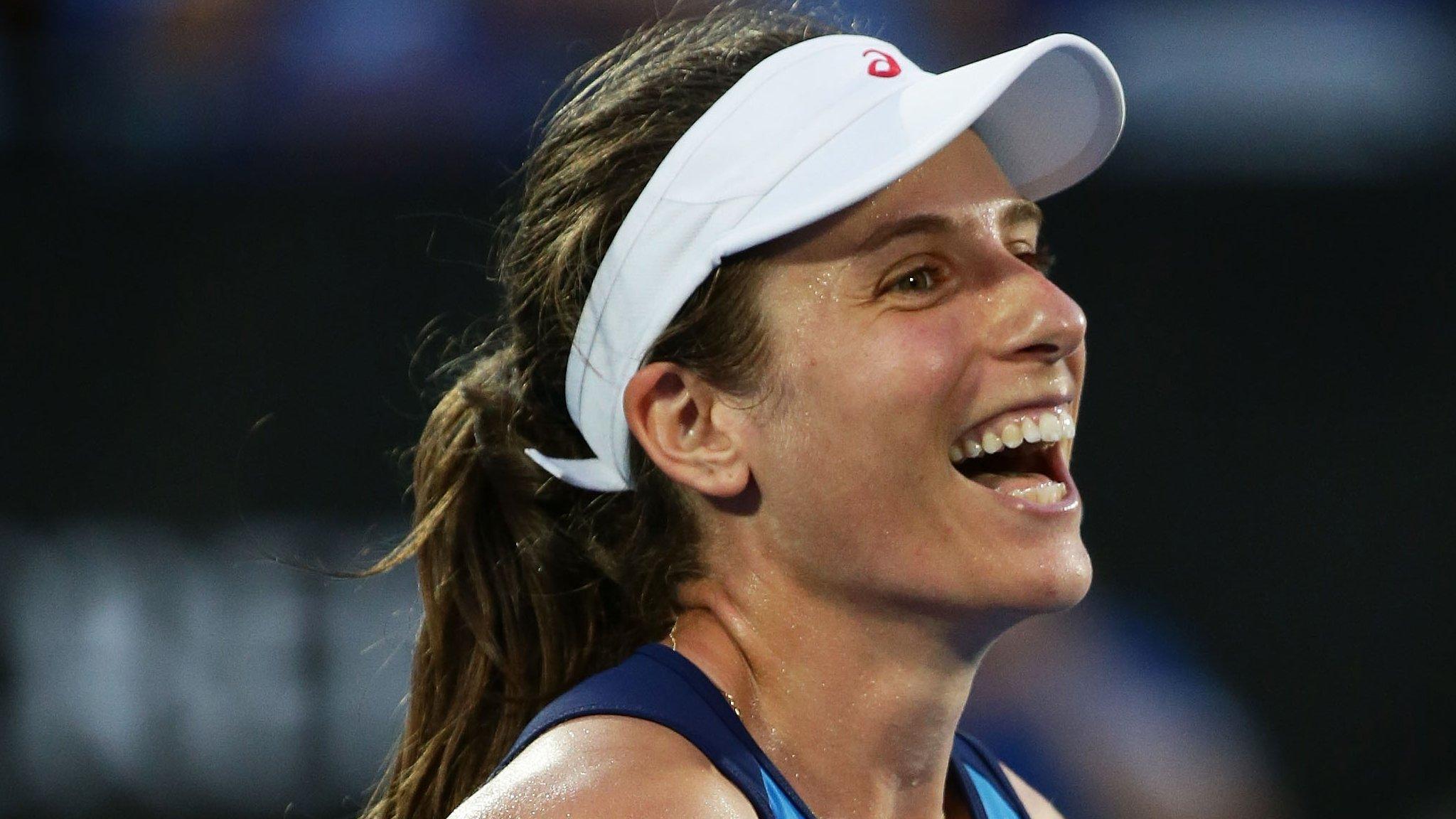
- Published24 June 2018
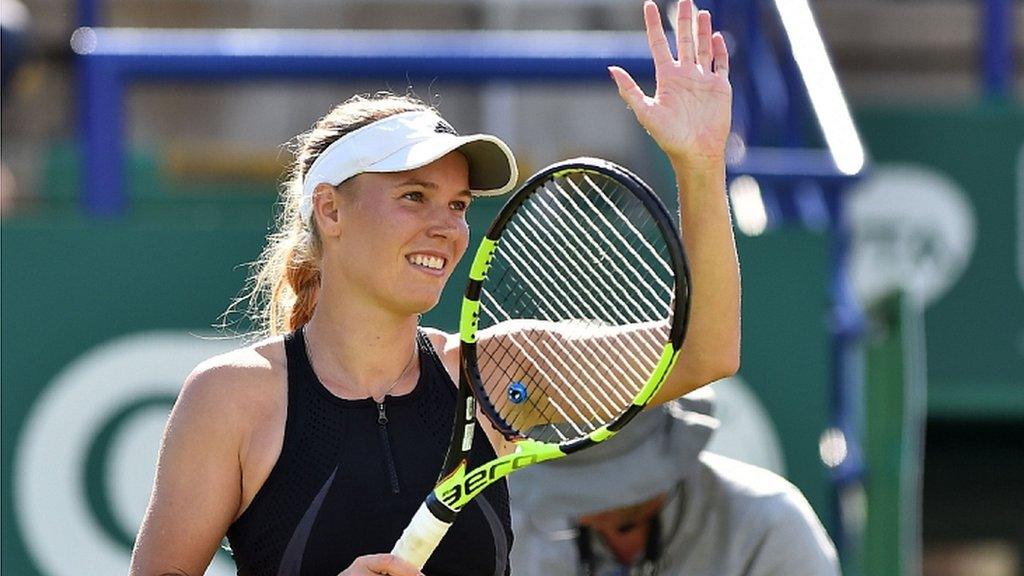
- Published30 May 2013
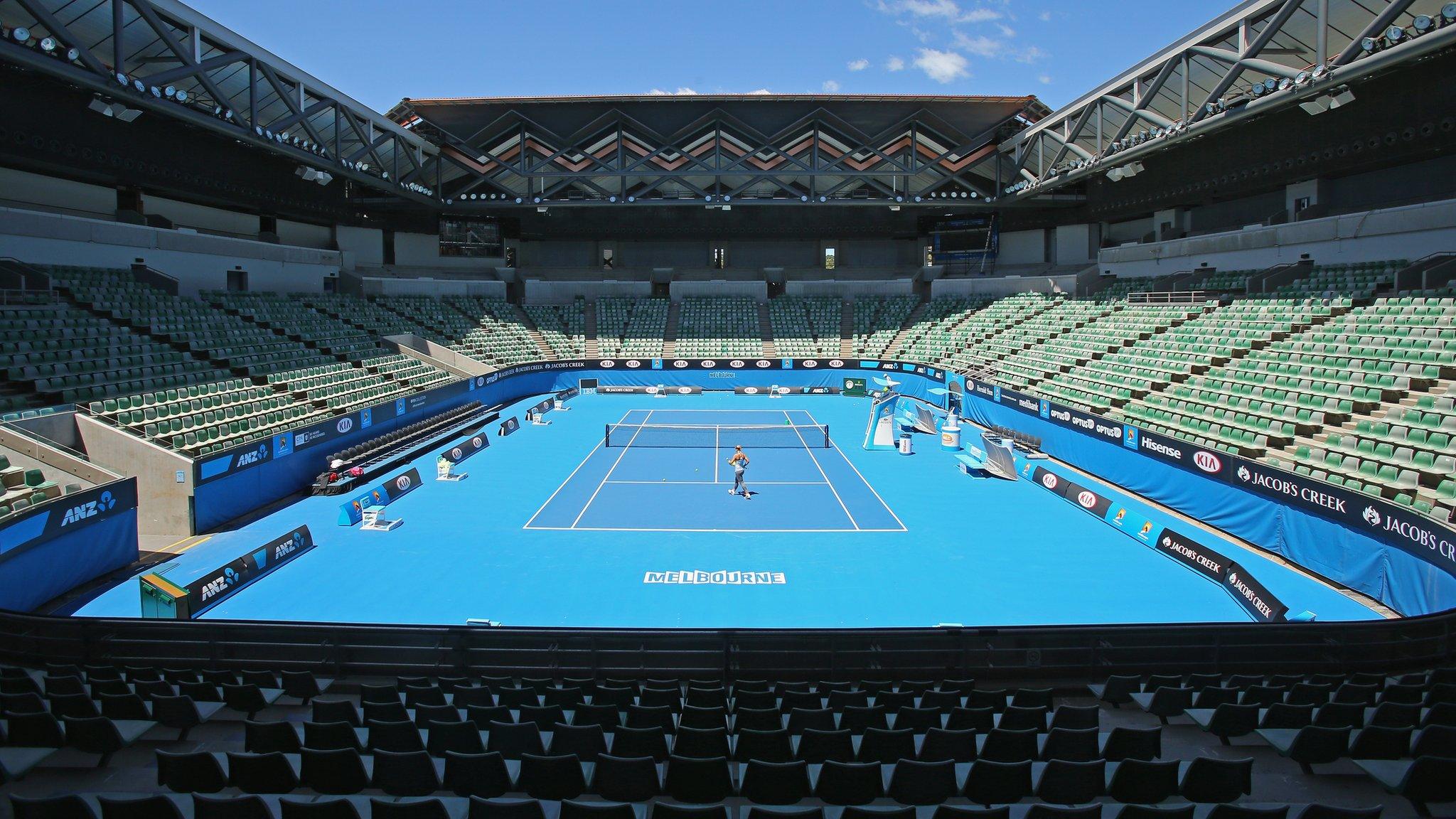
- Published14 January 2017
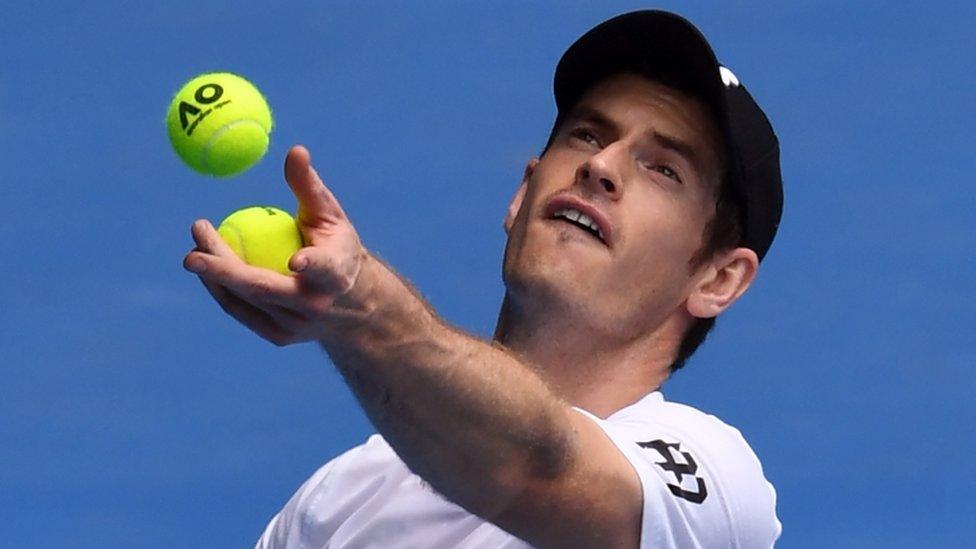
- Published14 January 2017
